Russell T Davies is cross. The writer and executive producer of Doctor Who for the past five years rises to his full 6' 6" height and spits: "Little? You can call me many things but not little!"
The day before the fourth series of the top-rated show finished on Saturday, Davies is incensed by a comment piece in the Daily Mail in which Quentin Letts called him "an irksome little man with too high an opinion of himself and a tendency to proselytise for gay rights at every opportunity".
What has irked Davies most is not the gay line - though he has sharp words about that - but the mistake born, he says, of a lack of basic research. After five years masterminding the BBC drama phenomenon that is Doctor Who, the Welsh-born Davies is a well-known and, well, large presence in the TV industry. He is still going to write part of the five Doctor Who specials over the next two years. However, the next series, to be broadcast in 2010, will be overseen by Steven Moffat.
Forthright and unafraid of controversy, Davies is no stranger to public vitriol. In 2001 he received death threats for his ITV drama Bob and Rose, in which a gay man played by Alan Davies embarks on an affair with a woman played by Lesley Sharp. Police were involved and people he imagined to be a few "misogynist ... saddos in bedsits" had to be "warned off" by ITV. The idea of a gay man "betraying his sexuality" was too much for them, it seems. "[They] treated me like the betrayer of the cause, like I'd let down homosexuality."
And there was also the time when he says he spent "about three weeks solid sitting in various radio studios" defending his Channel 4 drama Queer as Folk. He seems proudest of having an American who claimed to cure homosexuality barred from a Five Live discussion with him when he asked the producer whether she would be happy to have Davies baby-sit her children.
"I love having debates with people when they are debates but some people, you just can't," says Davies. "Some people shouldn't be given the oxygen."
Fewer harrumphs
After this sort of history, Doctor Who must have come as a surprise, with fewer harrumphs than Davies was expecting - or perhaps actually wanted. "There was not really a whisper about that," he says of the inclusion of the bisexual Captain Jack Harkness (who at one point planted a smacker on the Doctor's face). He adds, for good measure, that there were "actually a low number of gay characters compared with heterosexual characters".
He sounds triumphant when he says: "The Daily Mail didn't complain, and there weren't any other official complaints. No complaint could have been upheld about it anyway because it was done with a sense of humour and [Captain Jack actor] John [Barrowman] was indefatigable about it."
He makes no apology for what the Mail sees as his proselytising for homosexuality. "I love the fact that that inflames people. But they can't stop me," he chuckles scornfully, about those he regards as inhabiting the "dark corners of the internet".
The arguments he says he won't miss are with people who question Doctor Who's emotional element.
"It's a drama, he's a character with a full emotional range. It is a very science fiction thing to separate the plot off and dissect a story and talk about, I don't know, the 57 emotional lines spoken by the Doctor."
He has been as critical of a tiny but vocal minority of Whovians as he is of the Daily Mail, calling them "mosquitoes". Even at the end of his tenure he continues to express regret that some of the obsessives "dominate the agenda".
"They are not real fandom, though, they are a core of mostly men who like to complain. Fandom is bigger and richer than that, and they are only about 1,000 people who give everyone else a bad name and build their life around a show."
In fact, he says if he had his time again there is "nothing" he would do differently on Doctor Who. However, he admits that the year-round schedule has been "exhausting". He always planned to work on the show for four or five years, the longest he has pursued any one project.
"I have done everything I want to do with it. I love it," he says, brimming with enthusiasm for a show he fell in love with when he was a child, dreaming of finding the Doctor waiting to take him as his next companion. "It is a very adult longing too, to escape everything."
He will miss it, of course, but he is relishing the next series, which he can finally watch as "a fan - the first time in 21 years". He has insisted that he is not sent any preview DVDs so that he can watch it live along with everybody else. He is full of praise for his successor and is confident the show is in safe hands. Besides, "it would still be a wonderful man fighting a bunch of monsters".
It's hard to have a favourite episode, he says, though if pushed he would name the one just broadcast: "Others, well you can see little bits of influences, bits of Buffy perhaps, a bit of Star Wars maybe, but this was pure Doctor Who. It was mad."
As we saw on Saturday, David Tennant lives to fight on in another Christmas special, which will be set in Victorian England and feature the Cybermen, as well as four other specials which begin filming in 2009. But Davies refuses to say whether Tennant will return when the full series returns in 2010, except that he has made his decision and that the BBC knows what it is. There's no point asking Davies, therefore, about rumours that James Nesbitt or Robert Carlyle will be taking control of the sonic screwdriver.
He is not a man to shy away from controversial comments, and says Tennant's eventual replacement should not be female. "I am often tempted to say yes to that to placate everyone but, while I think kids will not have a problem with [a female Doctor], I think fathers will have a problem with it because they will then imagine they will have to describe sex changes to their children.
"I think fathers can describe sex changes to their children and I think they should and it's part of the world, but I think it would simply introduce genitalia into family viewing. You're not talking about actresses or style, you're talking about genitalia, and a lot of parents would get embarrassed."
Tightknit bunch
Typically though, Davies can't help imagining Lesley Sharp or Judi Dench in the role, adding that he thinks Amy Winehouse would be "brilliant".
One woman he is a huge fan of is the BBC's head of fiction Jane Tranter, who has been accused in the Guardian and elsewhere of wielding too much power as the BBC micro-manages projects.
"I understand the arguments and I have friends in the independents who genuinely find it hard," he says. "I know it's complicated and I also know I am in a very privileged position, but we are a tightknit bunch on this show and we have worked bloody hard to get to the position we're in. For five years I have had absolute freedom and nobody has interfered with me in any shape or form."
He has had, he says, "enormous support" from the BBC and Tranter but adds that his status is the result of hard work by him and his team.
"I am not Jane Tranter's secret love child, I wasn't born with a silver spoon in my mouth, I haven't got incriminating photos of her. I am not even her best friend. I met her for the first time when I wrote one episode of Linda Green and for the second time when she asked me to do Doctor Who."
He is soon to collect his recently awarded OBE at Buckingham Palace - accepting it went against his republican principles, and he "did have to think about it". He did so, he said, for the sake of his 83-year-old dad. Davies also believes that it is an honour from the government, not royalty, and he is a cautious supporter of New Labour (Iraq notwithstanding) for its record on gay rights.
As well as dreading the prospect of a Tory government, Davies is mulling over two drama ideas for "grown-ups", one of which will be about gay men in their 40s. The BBC will have first refusal. This Christmas, however, is "fucked" because he will still be hard at work on the four specials that begin filming in January once Tennant finishes his RSC run as Hamlet.
Davies has no immediate plans to return to children's TV but he remains worried about its future, believing that the BBC is likely to take it off its main TV networks "on to digital". "Now ITV is showing Midsomer Murders at 4pm, with wives getting their head stoved in, what hope is there for children's programmes on the BBC?" he wonders. "It is terrifying."
So is the thought of the post-Doctor world. "I get ferried everywhere and my time is managed so brilliantly I won't be able to go to the shops after this, I'll be like a baby," he says. "I am more in love with it than ever, but that's probably the best time to get out - not when you're bored."
· Russell T Davies is delivering a masterclass on Saturday August 23 at the MediaGuardian Edinburgh International Television Festival.
Tuesday, July 8, 2008
The Guardian Interview..........
Subscribe to:
Post Comments (Atom)











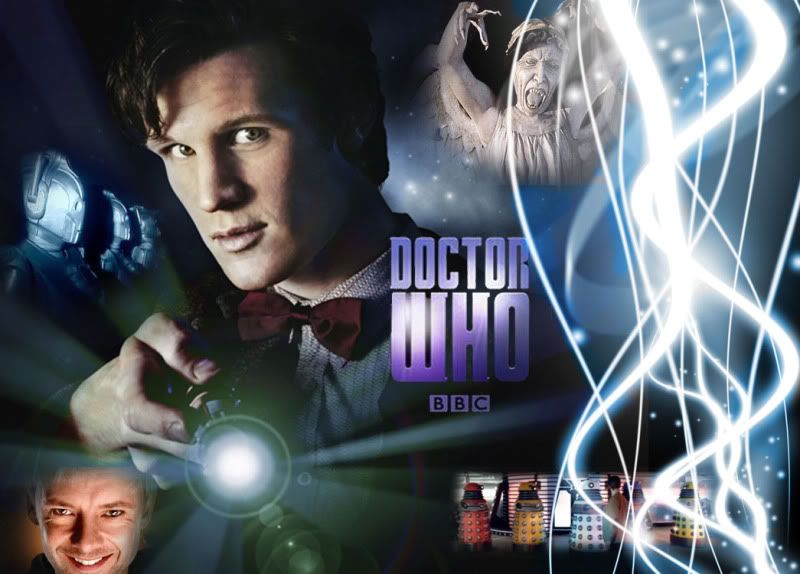
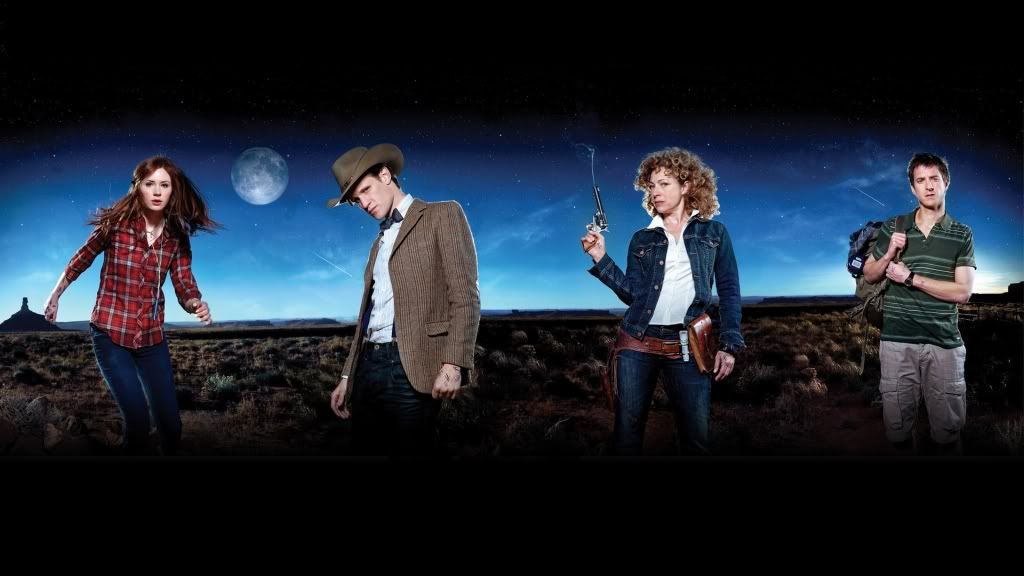
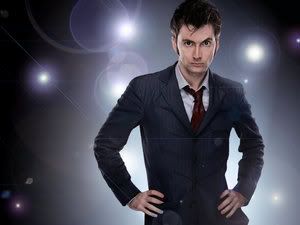

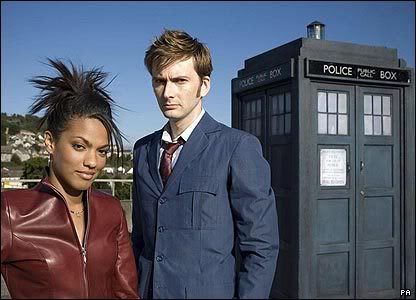
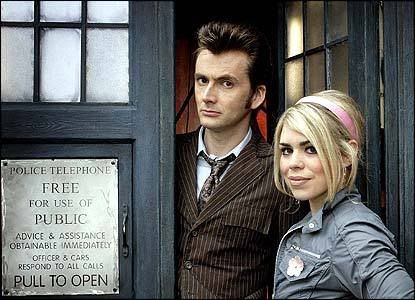
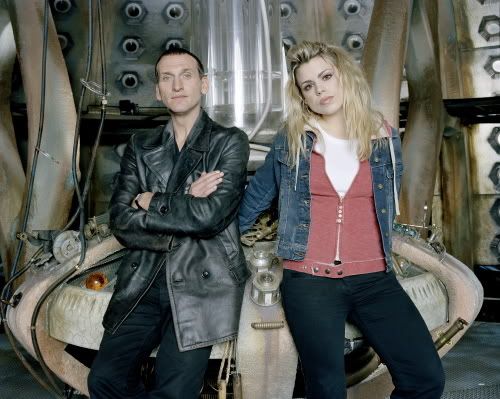

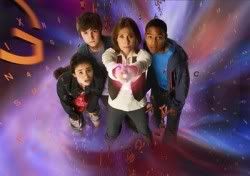

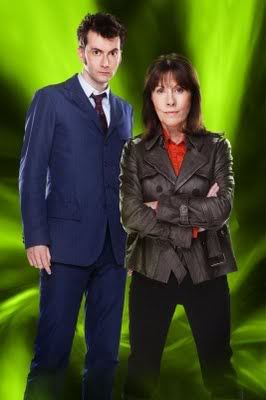
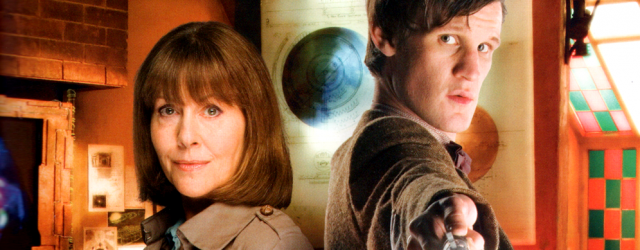
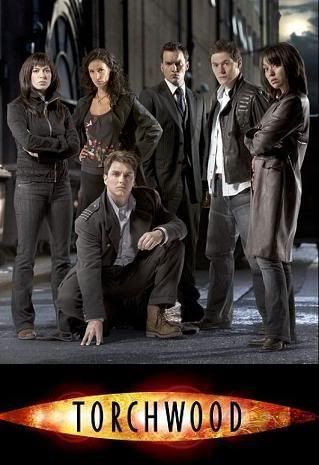
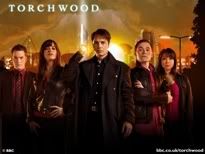

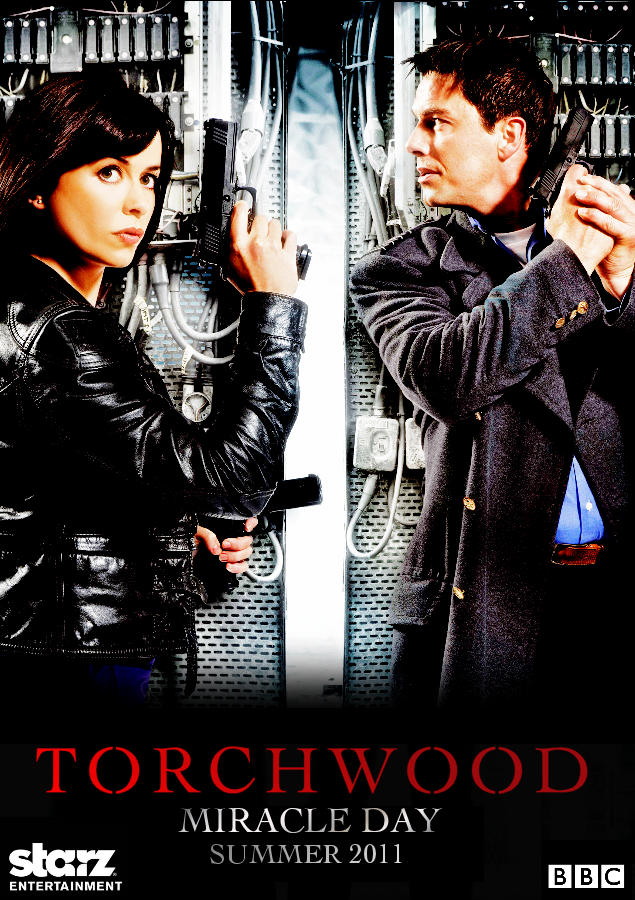


0 comments:
Post a Comment